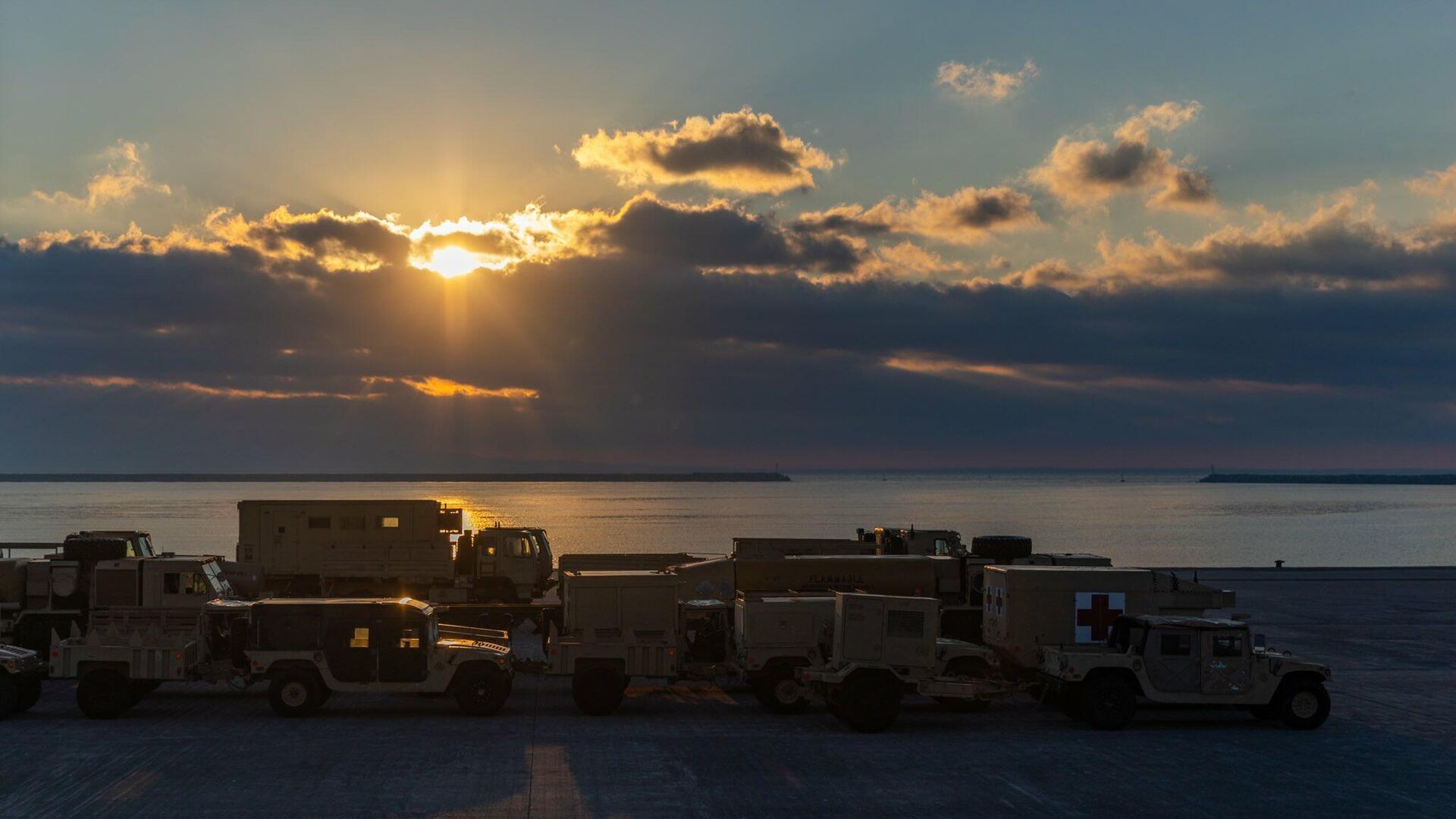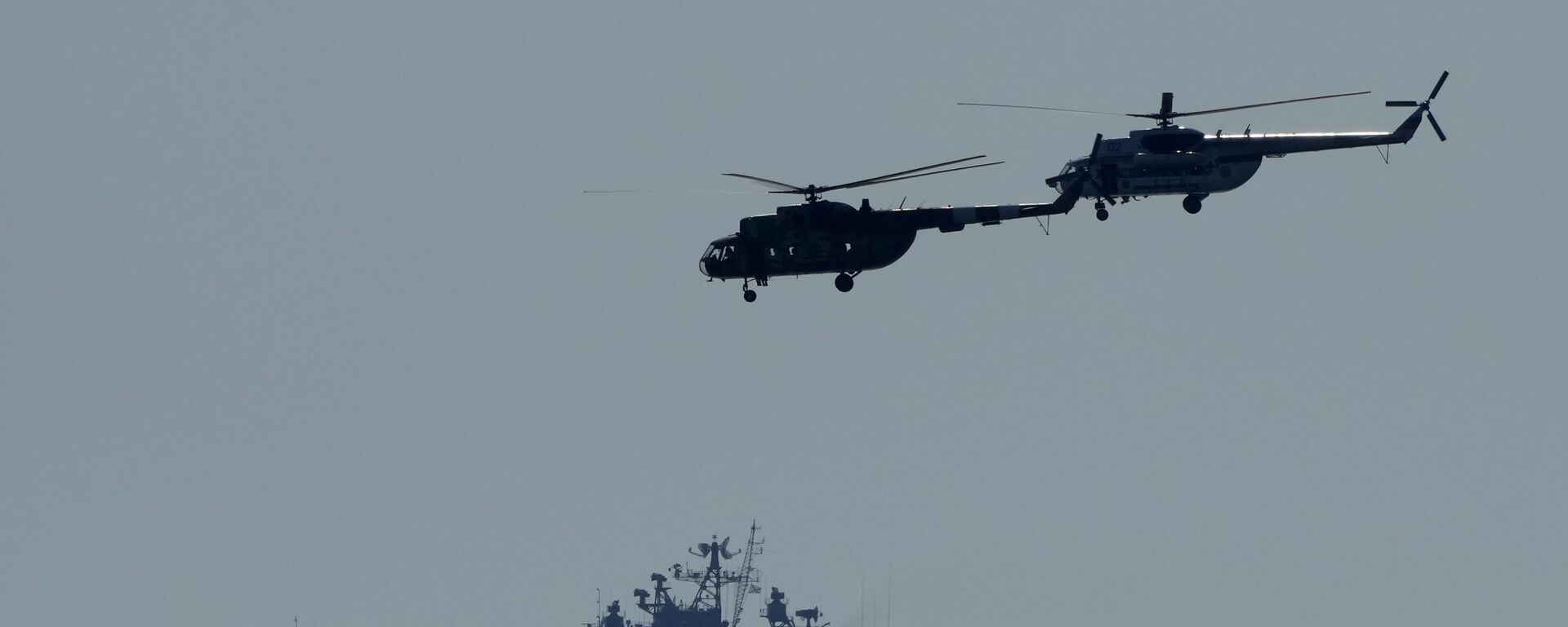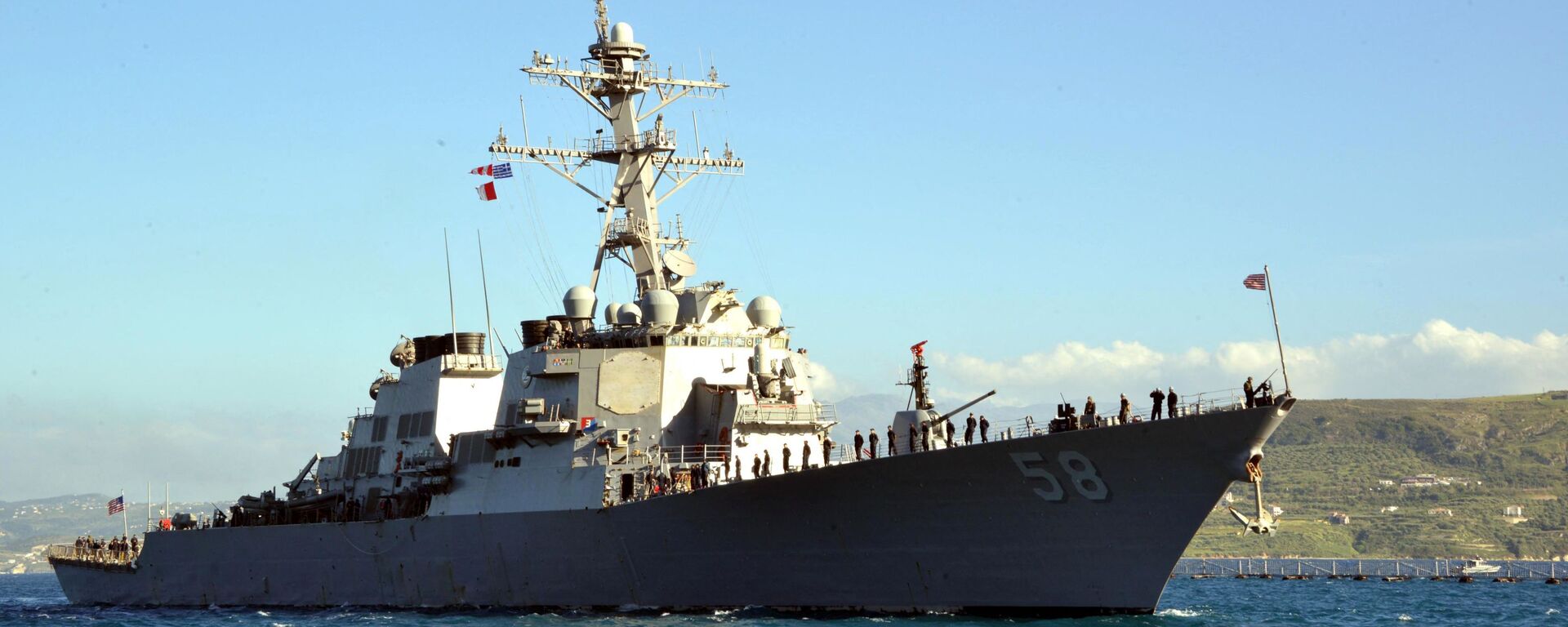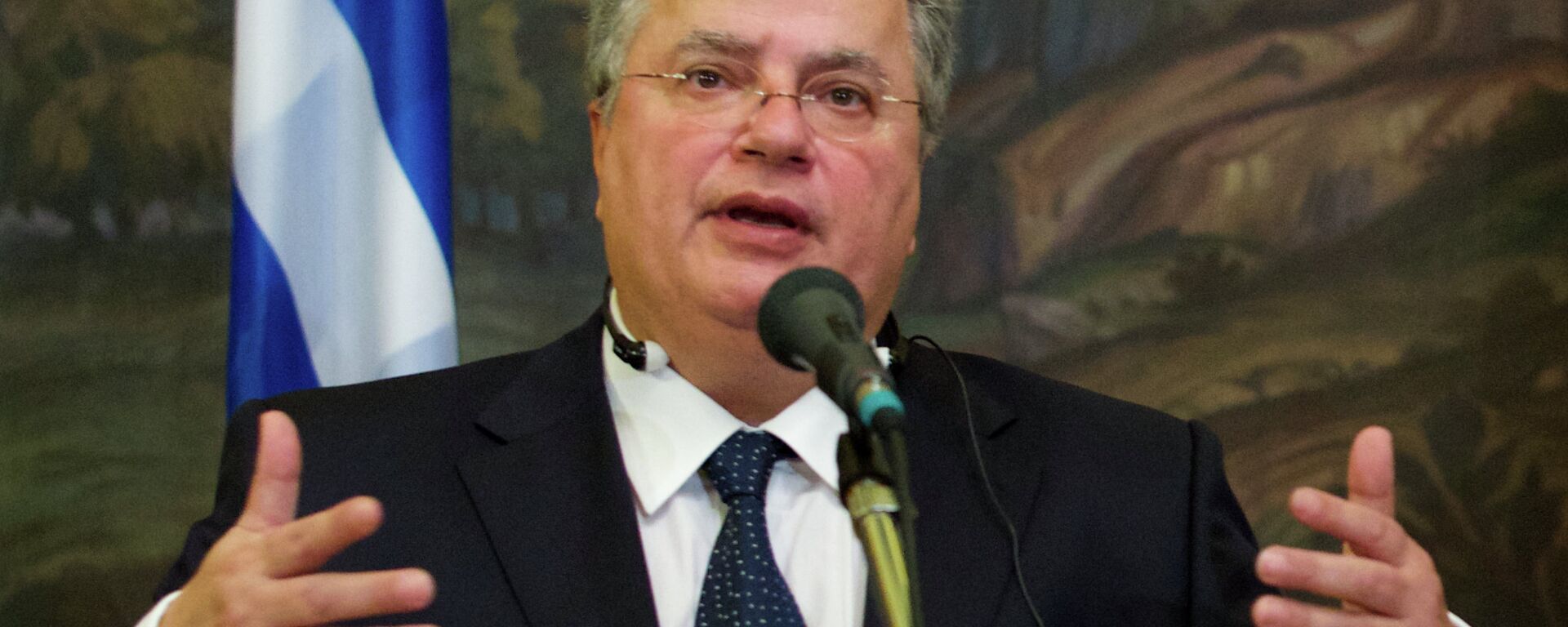Kremlin Concerned by Concentration of US Troops in Greece

© Photo : Twitter/ @21stTSC
Subscribe
The United States has a major military presence at the Souda Naval Base on the Greek island of Crete. In October, Athens granted the Pentagon access to additional bases in the country as the two countries expanded their bilateral military cooperation agreement. On Friday, the State Department approved a new $9.4 billion naval equipment deal.
Russia is concerned by the concentration of US forces in Greece, Kremlin spokesman Dmitry Peskov has said.
“The problem is very simple: More and more NATO and US troops are being concentrated on your territory. You are transporting hundreds and thousands of pieces of military equipment through Alexandropoulos, etc. You are opening new bases for NATO, at the same time that NATO calls us [Russia] an enemy. And NATO formulates the main goal of the alliance, which is nothing other than the ‘containment’ of Russia. This worries us. You must understand this,” Peskov said, speaking to Greek television channel ANT1.
Asked whether he believed that Greece could become hostile toward Russia, Peskov said “No, never.” He added, however, that Athens is bound by obligations stemming from its membership in NATO, and that this is a problem for Moscow, because the alliance continues its expansion toward Russia’s borders.
Commenting on what reaction he hopes to see from Greece if the European Union were to slap new sanctions on Russia over the Ukraine crisis, the Kremlin spokesman said Moscow considers Athens a partner and would like to continue for relations to continue in this vein.
On the issue of the sale of Russian S-400 missile systems to Turkey, Peskov suggested that they were defensive systems, unlike some of the NATO equipment being transported through Alexandropoulos.
Russian President Vladimir Putin and Greek Prime Minister Kyriakos Mitsotakis met in Sochi on Wednesday for talks. Putin assured his Greek counterpart that although NATO has declared Russia an adversary, Russia is “not striving for any confrontations with anyone,” and hopes that Greece will take a similar position.
All Your Base are Belong to US
Taking advantage of escalating tensions between Greece and Turkey over gas drilling rights in the Mediterranean, Washington has moved to dramatically expand defence ties with Athens in recent months, modifying the bilateral defence pact in October to grant the Pentagon access to four additional bases in the Mediterranean nation. The two countries have also been expanding the scope of joint military exercises –with the Olympic Cooperation 21 drills held in November seeing US Army and Navy assets operating alongside Greek troops.
Earlier this month, the US Embassy in Athens boasted the arrival of the “largest shipment of US equipment in history” at the Alexandropoulos port, with helicopters, drones, tanks, artillery and other gear arriving in the strategic facility, which straddles the northern edge of the Aegean Sea and is close to the Greek border with Bulgaria and Turkey. The shipments have included about a thousand combat vehicles, 120 helicopters and military personnel, with forces using the port as a staging area for drills in Romania and Bulgaria, the Balkans, and southern Europe.
Another incredible day and milestone in Alexandroupoli welcoming the largest shipment of US equipment in history as the port grows as a lynchpin of the US-Greece defense & security relationship & a key gateway to the Western Balkans and the Black Sea region. @USAmbPyatt @hndgspio pic.twitter.com/YPtVK8tJVg
— U.S. Embassy Athens (@USEmbassyAthens) December 3, 2021
Greek Defence Minister Nikalaos Panayotopoulos said the facility would serve US interests in the region. At a recent NATO forum in Estonia, the minister urged NATO to respond to Russian actions and “prepare for a long struggle in relations with” Moscow.
On Friday, the US State Department gave the nod to a $9.4 billion weapons deal to sell Greece four new Freedom-class littoral combat ship and upgrade the Mediterranean nation’s Hydra-class frigates. That agreement will require congressional approval before moving forward.
@USArmy Soldiers with @hqSDDC, 627 Movement Control Team and the @1stCavalryDiv offload tactical vehicles and aircraft from the vessel @ARCships Independence at the port of Alexandroupoli, Greece. #TogetherWeDeliver @FORSCOM @1stCavalryDiv pic.twitter.com/z55K2TTCcv
— USTRANSCOM (@US_TRANSCOM) December 8, 2021
Former Greek foreign affairs minister Nikos Kotzias slammed the current government in Athens over the expanded defence cooperation with the US, warning that the expansion of the bilateral security agreement might draw Athens into an armed conflict with Russia, China or the Arab world, and urging Greece to stick to an “independent, multidimensional foreign policy” in which it acts as mediator between East and West. Kotzias complained that although Athens’ agreement to expand the US presence was predicated on the assumption that the US would support Greece in its standoff with Turkey, the US side is actually focused on Russia.
The United States’ security relationship with Greece in the immediate aftermath of the Second World War, with the Mediterranean nation joining NATO in 1952, the same year as Turkey, on the assumption that the two countries’ membership in the alliance would ease tensions between the historic enemies. Since then, Athens and the bloc have had several rough patches, with Greece pulling forces out of NATO’s southern Mediterranean grouping over threats by Turkey to invade Cyprus in 1964. Athens withdrew from NATO command in 1974 after the Turkish invasion of Cyprus. In 1980, the country considered withdrawing from the alliance altogether, but reneged amid pressure from Washington.




